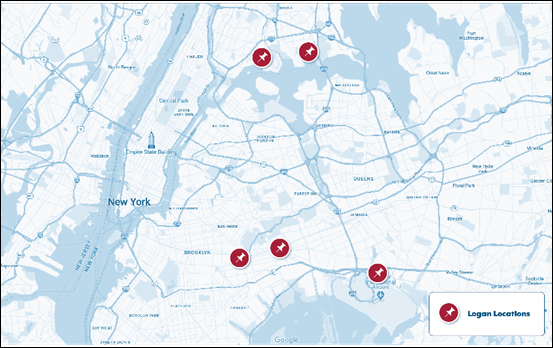Bus Companies Will Invest Up to $2 Million to Electrify Buses and Curb Air Pollution from Excessive Idling in Low-Income Communities and Communities of Color
New York Attorney General Letitia James announced settlements with four school bus companies to stop illegal excessive idling at their bus yards in communities of color and low-income communities in Brooklyn, Queens, the Bronx, and on Staten Island. The companies—Consolidated Bus, Inc. (Consolidated), Logan Bus Company (Logan), Pioneer Transportation Co. (Pioneer), and Total Transportation Corp. (Total)—will each be required to invest up to $2 million to purchase new electric buses or electrify some of their current fleet. The Office of the Attorney General (OAG) alleges that these four companies violated New York laws by allowing school buses to idle for extended periods of time at their bus yards. Emissions from buses and cars are the largest contributor to air pollution in New York, and excessive idling endangers the health of surrounding communities. By contrast, the new electric buses will not emit any air pollutants. The companies will also install automatic idling shut-off timers on their remaining traditional buses and implement anti-idling training for drivers.
"School bus companies play an important role in getting children to and from school safely, but they should be able to do so without polluting our communities,” said Attorney General James. “New Yorkers are already suffering the health consequences of air pollution, and these bus companies all operate bus yards in low-income communities and communities of color that are already bearing the disproportionate impacts of this pollution. We must do everything we can to protect the health of our children and our planet, and my office will always fight against environmental injustice.”
Data provided by the fleet management system that the New York City Department of Education (NYCDOE) has installed on all New York City school buses indicated that the companies had all repeatedly exceeded idling limits. The data revealed thousands of instances of excessive idling by Consolidated, Logan, Pioneer, and Total at their bus yards. Most of these bus yards, which are in Brooklyn, Queens, the Bronx, and on Staten Island, are located in areas identified by the New York State Department of Environmental Conservation (DEC) as potential “environmental justice areas,” or neighborhoods that are disproportionately impacted by environmental harms such as air pollution. The companies’ bus yards are sometimes clustered together in these neighborhoods, which exacerbates their negative impacts on the surrounding community.

Map of Consolidated bus yards

Map of Logan bus yards

Map of Pioneer bus yards

Map of Total bus yards
New York law prohibits idling for over five minutes, while New York City law prohibits idling for more than three minutes, or one minute when the vehicle is near a school building. The OAG investigation focused on instances of idling for periods of more than two hours in the early morning to rule out instances where extended idling might be allowed under the law due to other circumstances, such as traffic or picking up and dropping off students.
Emissions from cars, trucks, and buses are one of the leading sources of air pollution in New York state. Idling is a significant source of these emissions, with an estimated 130,000 tons of carbon dioxide emitted in New York City alone each year. Emissions from diesel-powered vehicles like buses are particularly harmful to the communities surrounding bus yards because they emit fine particulate matter that has been linked to numerous problems, including asthma, cancer, and heart disease. The health impacts of air pollution are disproportionately felt in low-income communities and communities of color in New York City, which are often home to bus yards and other high-emission facilities like power plants located in close proximity to residential neighborhoods. Children in Central Brooklyn, the South Bronx, and Upper Manhattan—which are predominantly low-income communities and communities of color—are three times more likely than children in other areas of the city to be diagnosed with asthma.
Depending on the number of alleged instances of illegal idling, the companies will each invest at least $300,000 and up to $2 million to purchase new electric school buses or “repower” existing traditional school buses, which involves removing the vehicle’s internal combustion engine and replacing it with an electric drive system. The companies will also implement mandatory training for all bus drivers to reduce unnecessary excessive idling at bus yards.
No comments:
Post a Comment